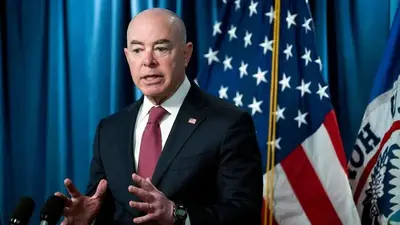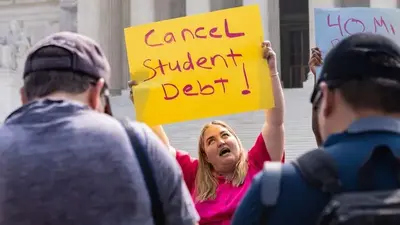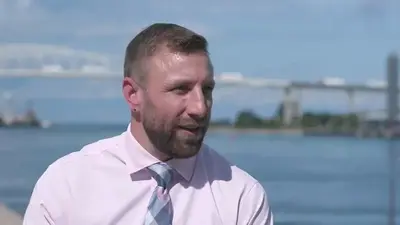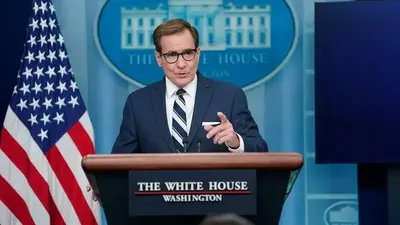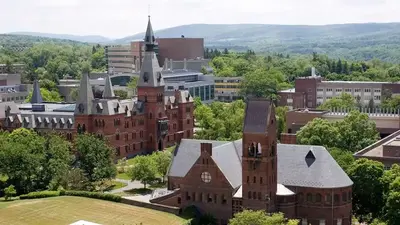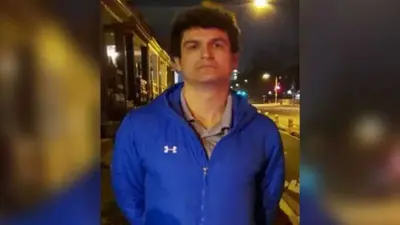Politics
RFK Jr. renews calls for Secret Service protection after armed man arrested at campaign event
Democratic presidential candidate Robert F. Kennedy Jr. is again calling for a U.S. Secret Service protective detail to be assigned to him following an incident at a campaign event last week involving an armed man who now stands accused of impersonating a police officer.
Since then, Kennedy's campaign has highlighted his family's history of assassination and the recent security scare as examples of the increased threat environment he faces amid his campaign to defeat President Joe Biden.
"Although it is a well-known historical fact, apparently, in your case, it bears repeating: Mr. Kennedy's uncle, President John F. Kennedy, was assassinated. Mr. Kennedy's father, Senator Robert F. Kennedy, was assassinated while a presidential candidate," Kennedy's campaign manager Dennis Kucinich said earlier this week in an open letter addressed to Biden and circulated to the press.
MORE: Armed man arrested at RFK Jr. campaign event in Los Angeles charged with misdemeanors: LAPD
According to a statement from the campaign, Kennedy's private security team, provided by Gavin de Becker and Associates, detained 44-year-old Adrian Paul Aispuro after being arrested at Kennedy's speech on Hispanic Heritage Month last Friday for allegedly being armed with two pistols and a fake U.S. Marshal's badge.
While the Los Angeles District Attorney's office declined to file felony charges, the city's attorney decided to charge Aispuro with carrying a loaded firearm, carrying a concealed weapon and impersonating an officer and was released on bond Friday. Aispuro's attorney did not immediately return ABC News' request for comment
In response, Kennedy praised the "alert and fast-acting protectors from Gavin de Becker and Associates" and the LAPD but said he was "still entertaining a hope that President Biden will allow me Secret Service protection." The president doesn't typically determine who receives Secret Service protection -- that decision falls upon the secretary of Homeland Security, who consults with an advisory committee made up primarily of congressional leadership, according to Secret Service.

In a statement to ABC News on Thursday, a spokesperson for the Secret Service said they were briefed on the event.
"We understand no one was injured and it was excellent work by LAPD officers who quickly determined the man was an imposter," the statement said.
Last week's incident followed another in mid-July involving a man who the campaign said broke into Kennedy's home while he was out of town.
In a memo posted to Kennedy's SubStack, the CEO and founder of the company providing Kennedy's security and a top PAC donor, Gavin de Becker, said that "the intruder was subsequently arrested, after which it was confirmed that he had a history of delusional ideation regarding the candidate, having been arrested a year earlier in a similar approach."
Kennedy's campaign did not return a request for comment seeking additional details on the alleged break-in.
The history: Who has received protection and when?
Kennedy's initial request for Secret Service protection was rejected after Department of Homeland Secretary Alejandro Mayorkas said in a July letter that, after consulting with a bipartisan congressional advisory committee, it was determined a detail was "not warranted at this time."
Kennedy has since been vocal in his desire to receive Secret Service, posting on X, formerly known as Twitter, after the rejection, "Since the assassination of my father in 1968, candidates for president are provided Secret Service protection. But not me."

Still, his campaign events in Iowa and New Hampshire, which sometimes draw several hundred people, often feature a visible security presence from Kennedy's private detail. Controlled entry and exits, bag searches and magnetometers are all commonplace -- and appear to have assisted in spotting Aispuro last week.
On Thursday, Kennedy's campaign circulated a fundraising appeal featuring de Becker and referencing Kennedy's lack of Secret Service and the cost to the campaign, claiming that as much as 30% of its budget goes to private security.
"I'm reaching out to you today in what is probably the most unusual fundraising request ever in presidential politics," de Becker said in the video. "It's because they've refused to provide Secret Service protection that 30 cents of every dollar donated to RFK Jr.'s campaign has to go to security. Normally, none of it would."
The Secret Service is legally required to protect presidential and vice presidential candidates and their families 120 days out from a general election -- a measure taken in response to the assassination of Kennedy's father, Robert F. Kennedy, while campaigning for the Democratic nomination. However, DHS acknowledged in its 2024 budget overview that recent requests for candidate protection were coming in earlier than in the past.
"In recent general elections, presidential campaign seasons have … commenced earlier than previous campaigns, often with direction given to the Secret Service to provide commensurate protection for this longer period," the department stated, adding that "candidates who meet the DHS's qualifications to be 'major presidential candidates' typically start to receive Secret Service protection in the winter before an election and, in some cases, through the primary elections in the spring."
A July memo from de Becker detailing the process Kennedy's campaign went through to apply for Secret Service protection and posted to Kennedy's Substack showed that its original request came nearly 18 months before the general election -- unusually early and an outlier compared to recent cycles, according to an analysis by ABC News of candidates' protective details.
MORE: RFK Jr. comes from a famous line of Democrats. But could a third-party run be in his future?
DHS did not respond to ABC News' repeated requests for comment on Kennedy's security request.
According to John Cohen, former acting undersecretary for intelligence at DHS and an ABC News contributor, candidates historically did not receive protection during or ahead of primary elections.
"If you look back historically, Secret Service protection usually was not provided, except under sort of unusual circumstances, to candidates until they received the nomination of the party. Over the last several decades, though, we've seen situations where requests have been made during the primaries," he said.
Since 2008, 10 candidates have received security through the Secret Service more than 200 days out from the general election (excluding former Secretary of State Hillary Clinton, who already had a detail as a former first lady).
In 2007, former President Barack Obama became the earliest candidate in History to receive a security detail, according to the Secret Service, 18 months before the general election.
Three candidates started receiving protection roughly one year from Election Day: former President Donald Trump and Ben Carson in 2015, and Herman Cain in 2011, who began receiving protection over unspecified threats.
At the time, a spokesperson for the Secret Service told Politico of Cain's detail, "Historically, it's not that unusual," and noted that Sen. Ted Kennedy and Rev. Jesse Jackson received protection at similar points to Cain during their candidacies in 1980 and 1984, respectively.
Contemporaneous reporting from The New York Times showed that five candidates during the 1980 electionwho met thresholds set by a congressional advisory committee were provided security in January, roughly 11 months before the election, contradicting a claim from Kennedy's team on Friday that those candidates were provided protection "more than 600 days before the election" that year.
According to the Times report, the issuance of Secret Service details to candidates that year came "later than it did for the 1976 campaign, when Secret Service protection began in October 1975, but earlier than in the previous campaign, when it began in March 1972."
And in 1984, according to another report from the Times, several candidates again received protection beginning in January.
Based on historical experience, the department said it is anticipating that there "may be upwards of six candidates receiving protection" from the agency this cycle. So far, at least two candidates have Secret Service on the trail: Trump and Biden, who are legally entitled to it.
"In RFK's case, though, it's an interesting question," Cohen said. "Clearly, his family has been targeted. He has a very recognizable name, you know, for better or worse. There are still people who harbor resentment towards the Kennedys."

Don Mihalek, a retired senior special agent with the Secret Service and an ABC News contributor, noted that it was not unusual for candidates to have private protection, and that would not preclude candidates from receiving a Secret Service detail.
"When President Trump was running [in 2015], he had a pretty robust security operation around him," Mihalek said. "But once he hit the markers that afforded him Secret Service protection, he took it, and then his private security sort of fell away."
Kennedy's request has become political as some Republicans work to paint Biden as uncaring and bolster his Democratic challenger. Last week, Sen. Ted Cruz, R-Tx., criticized Biden for the decision, saying the president "shouldn't mess around" given Kennedy's family history.
"Surely, this admin wouldn't put a man's life at risk rather than concede that RFK Jris a major candidate," Cruz posted to X.
The criteria: How does a candidate qualify?
The Secret Service's website lays out several factors that the DHS and the advisory committee would consider in assigning a candidate a protective detail, including but not limited to a Real Clear Politics national polling average of 15% or greater for over 30 days, a risk assessment conducted by the agency and the level of campaigning that is occurring nationally.
In a July letter written prior to the rejection and featured on Kennedy's Substack, Kucinich maintained that Kennedy had met those requirements.
"He polled above the threshold, has been actively campaigning on a national basis, operates a national campaign apparatus, has appeared before thousands of audience members at events in many states, regularly appears as a candidate on national network news programs, town halls, podcasts, interviews, is producing campaign materials, advertisements, and websites, is successfully fundraising, and has assembled a large campaign staff," Kucinich said.
MORE: RFK Jr. super PAC got $5M from megadonor who had backed Trump
Kennedy did have a Real Clear Politics average of over 15% for about two months between April and June, but his numbers have since fallen. As of Friday, Kennedy is at 14.3%.
Mihalek said the DHS and the advisory committee have latitude in determining "who they feel is hitting the guidelines that merits offering Secret Service protection" but noted that in his experience, "once these candidates hit those markers, it's almost become a reflexive action now where they're offered the protection."
"It sounds to me like RFK Jr. is making an emotional argument for protection based upon his family's history versus a factual argument," Mihalek said in an interview with ABC News earlier this week.
Kennedy, whose campaign resubmitted its application again to the DHS in August, has argued that the escalating threat environment combined with his family's history presents "unique and well-established security and safety risks aside from commonplace death threats," which he said were detailed in his first request.
"At the end of the day, it really comes down to risk. It comes down to is the person a legitimate candidate for office? Is there a high risk that they could be targeted? Which will be the real key questions," Cohen said.
Anticipating potentially high demand, the DHS requested $209 million for candidate protection in 2024 "to support the enhanced protection, security, travel and overtime requirements" -- a record amount, according to data published by the Congressional Research Service.
MORE: RFK Jr. says he’s not anti-vaccine. His record shows the opposite.
Each protective detail assigned to a candidate and their family demands various resources, according to the department, including 24/7 shift agents, advance teams, explosive threat teams, magnetometer screening capabilities, intelligence personnel and residential security.
Cohen added that the upcoming cycle is taking place amid unprecedented security concerns.
"The 2024 election cycle is taking place at a time when this country is experiencing probably the most volatile, complex and dynamic threat environment that I've experienced in my 40 years working in law enforcement and homeland security," Cohen said. "While there may be resource and other criteria that go into these decisions regarding the provision of a protective detail, those decisions are complicated at this point in history because of the volatility of the current threat environment in the United States."
But Cohen, who has worked extensively with the Secret Service and within the DHS over a decadeslong career, said that amid all of the considerations Secretary Mayorkas and the advisory committee take into account, politics is not among them.
"Politics do not enter into their decision-making," Cohen said. "They are law enforcement professionals, and if they're making a decision, I'm very comfortable they've made it purely because they've assessed the risk and they've assessed the criteria that are generally associated with these decisions. They make an informed decision based on that alone."
-
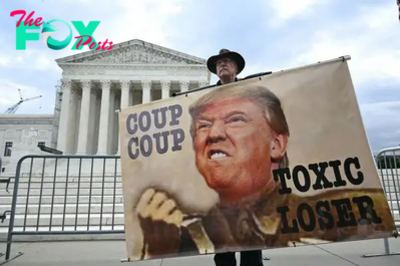
 Politics31m ago
Politics31m agoFrom Military Coups to Selling Nuclear Secrets, Supreme Court Wrestles With Implications of Granting Trump Immunity
-
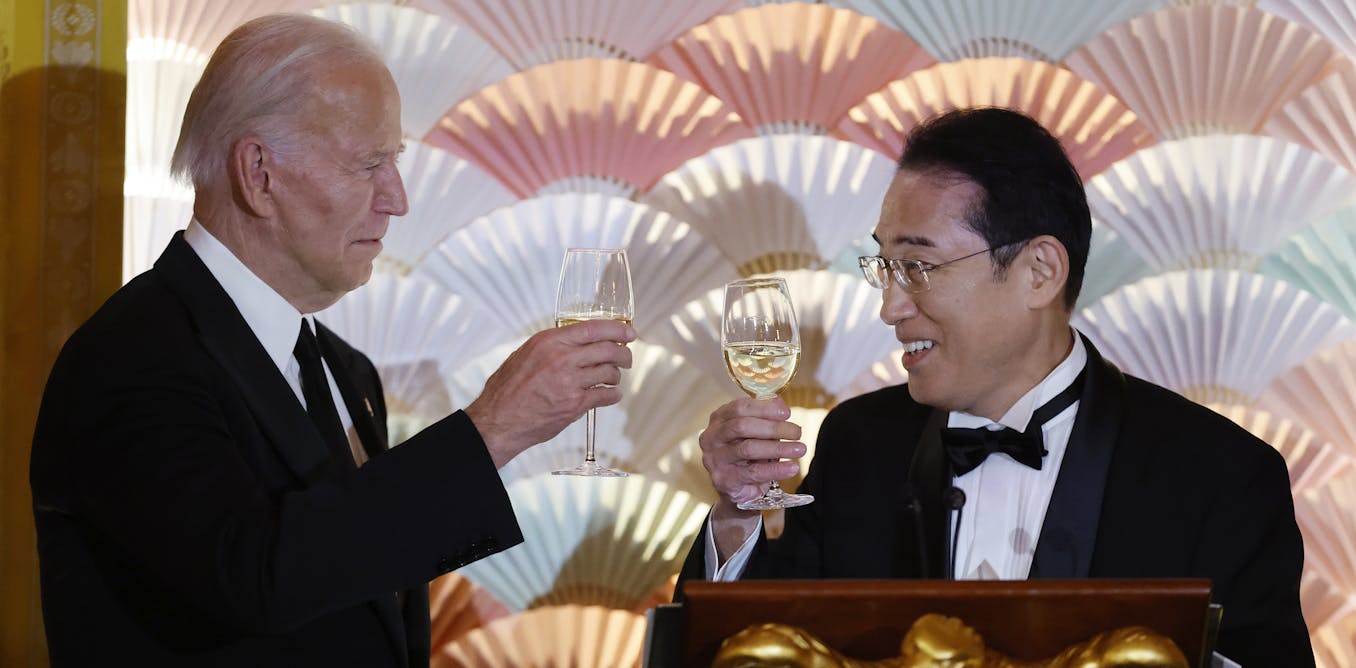
 Politics2h ago
Politics2h agoJapan’s diplomatic charm offensive in US aims to keep Washington in committed relationship
-
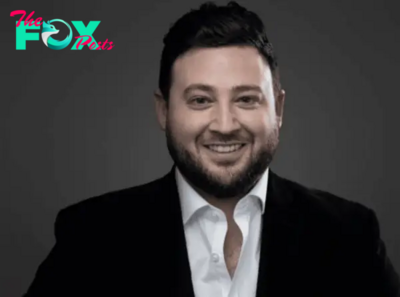
 Politics7h ago
Politics7h agoBusiness Beat: Abe Cohen new VP of Business Development for RI, Marquis Health Consulting
-

 Politics7h ago
Politics7h agoAdvocates, providers on new Nursing Home mandates – Herb Weiss
-
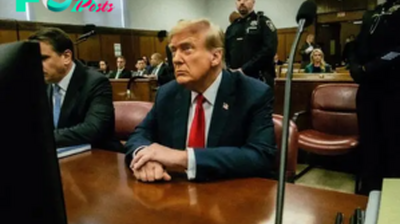
 Politics18h ago
Politics18h agoSupreme Court to Decide Whether Donald Trump Can Be Criminally Prosecuted
-
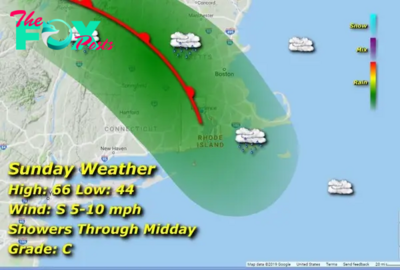
 Politics1d ago
Politics1d agoRhode Island Weather for April 28, 2024 – John Donnelly
-

 Politics1d ago
Politics1d agoThe Promised Land: a short story by Michael Fine
-
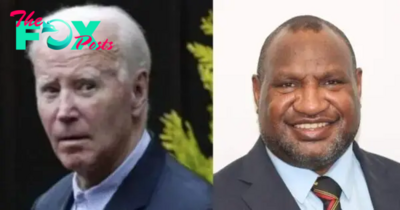
 Politics2d ago
Politics2d agoPresident Of Papua New Guinea Tells President Joe Biden: Our Nation Doesn't Deserve Being Labeled Cannibals
